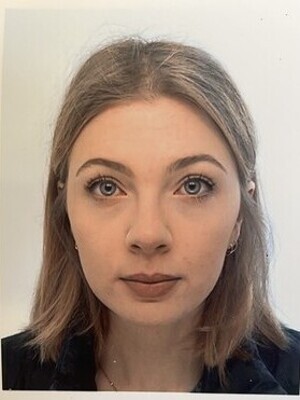An ALICE Junior
- Bachelors, Masters or PhD student (or equivalent)
- A person whose PhD (or equivalent) award was within the last 5 years (post-doc)
- A person whose University degree was awarded within the last 8 years
Essentially the junior members of ALICE are those people who are near the beginning of their careers. Much of the day-to-day analysis is conducted by the junior members, along with service tasks and other important tasks such as detector calibration and development, which are necessary for ALICE to run in a smooth and efficient manner.
Junior representation
The representation of the Juniors within ALICE management passes through the election of 3 juniors' representatives to the Collaboration Board (CB).These representatives serve a 2 year term on the CB, and they have one vote each in it. They act as liaisons with the junior community, by reporting on key decisions made by the CB and by addressing the issues of the juniors within the CB itself. They also send one member to participate in the Management Board. One of the three elected representatives must be a student, in order to ensure that the voices of those who are still students are also heard.
Remarks
If you are a junior, you should be on the mailing list (alice-juniors@cern.ch) both in order to vote and to receive important information. Subscription is automatic via GLANCE, based on your employment status. If you believe you should be counted as a junior but are not on the mailing list, please contact the Junior Representatives (alice-junior-reps@cern.ch) to let us know.
It is important to make people in the ALICE management understand the experiences that juniors have, and the realities that we face in our current career paths. This will allow ALICE to make decisions that better suit the needs of everyone within the collaboration.
It is equally important to involve every ALICE junior in the discussions and in the election procedures, to support our representatives and to let them know the problems that the juniors face. Juniors are a vital part of the collaboration and should have a word in how it is managed!
Guidelines for Thesis Video
Length: ~ 3 mins
Level: Should be accessible to an ALICE junior
Format: Can be anything you choose, below are a few suggestions.
- One format that we have found works quite well is making slides and recording yourself talking through it with Loom (free to download here).
- Another good option is to use a Zoom recording where you can record yourself in a Zoom room where you are the only participant and you can download the recording.
Outline:
- Introduction: Introduce yourself, your institution, your thesis title, your service work project, and anything else you’d like to say about yourself.
- Physics/technical background: Introduce roughly the physics concepts needed to explain your thesis work.
- ALICE Detector: Provide a brief overview of the ALICE detector and highlight the components particularly important for your work.
- Results: Provide very concisely a summary of your results and the takeaways from your thesis.
You can find an example Video in the link here (by Hannah Bossi).
Once done: send it to alice-junior-reps@cern.ch for uploading to CDS videos.
Mailing lists
Useful links
Anonymous Questions
Feel free to ask any questions or let us know about things that can be improved! Your text will be sent anonymously to alice-junior-reps@cern.ch. We might forward questions (strictly anonymized) to appropriate bodies. Please, write here your concern.
Junior representatives |
||
 Rohaan Deb (Brescia, Italy) |
|
|
Juniors Ambassadors
- Brazil
- Maria Monalisa De Melo Paulino (Sao Paulo, Brazil)
- Bulgaria
- Radoslav Simeonov (Sofia, Bulgaria)
- China
- Chunzheng Wang (Shanghai, China)
- Czech Republic
- Karla Zertova (Prague, Czech Republic)
- Denmark
- Emil Gorm Dahlbaek Nielsen (Copenhagen, Denmark)
- Finland
- Finn Smits (Jyvaskyla, Finland)
- France
- Stanislas Lambert (Nantes, France)
- Germany
- Berkin Ulukutlu (Munich, Germany)
- Carolina Anna Jauch (Darmstadt, Germany)
- Archita Rani Dash (Munster, Germany)
- Hungary
- Zsofia Jolesz (Budapest, Hungary)
- India
- Hirak Kumar Koley (Kolkata, India)
- Indonesia
- Syaefudin Jaelani (Jakarta, Indonesia)
- Japan
- Shunsuke Kurita (Hiroshima, Japan)
- Takuma Matsumoto (Hiroshima, Japan)
- Mexico
- Yael Antonio Vasquez Beltran (Puebla, Mexico)
- Netherlands
- Cornelia Koster (Amsterdam, Netherlands)
- Norway
- Emilie Haugland Solheim (Oslo, Norway)
- Magnus Thoegersen (Oslo, Norway)
- Poland
- Zuzanna Anna Chochulska (Warsaw, Poland)
- Republic of Korea
- Su-Jeong Ji (Pusan, Republic of Korea)
- Slovak Republic
- Lucia Anna Tarasovicova (Kosice, Slovak Republic)
- Sweden
- Kaare Endrup Iversen (Lund, Sweden)
- Thailand
- Jetnipit Kaewjai (Liverpool, United Kingdom)
- United States
- Sierra Lisa Cantway (Connecticut, United States)


